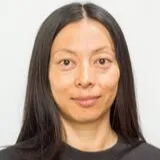We are extremely proud to have our work recognised with this award from the RCGP. The speculum is a key barrier to cervical screening and by studying alternative options such as non-speculum clinician-sampling, we hope to increase access to screening for the many women and people with a cervix who find speculum-based screening uncomfortable or unacceptable.
Dr Anita Lim, Senior Epidemiologist from the School of Cancer & Pharmaceutical Sciences
30 June 2022
RCGP Research Paper of the Year awarded to King's team
A team of researchers from King’s has won the RCGP Research Paper of the Year in the health services category.

The paper titled ‘Non-speculum sampling approaches for cervical screening in older women: randomised controlled trial’ and published in December 2021, explores the impact of screening without a speculum on uptake among women aged 50-64. The study found 17% more women were screened when they had the option not to use a speculum during the exam. Instead, a doctor or nurse could take a vaginal sample without a speculum.
The prestigious award celebrates research excellence to an individual or group of researchers who have undertaken and published an exceptional piece of research relating to general practice or primary care.
The authors of the paper include Dr Anita Lim, Dr Jo Waller, Dr Laura Marlow, Jane Rigney and Professor Peter Sasieni from the School of Cancer & Pharmaceutical Sciences; Dr Thomas Round from the School of Life Course & Population Sciences; and Dr Rebecca Landy from the National Cancer Institute and Tony Hollingworth from Barts Health NHS Trust.
Dr Thomas Round added: "Many thanks for the RCGP recognising this work, particularly as this primary care randomised controlled trial (RCT) was carried out in the deprived and diverse population in East London. This trial showed a significant increase in cervical screening uptake in older women from diverse primary care populations when offered non speculum options. Often women find a speculum uncomfortable or distressing so this is important research. Whilst further work is needed, we hope this RCT can influence practice and policymakers so that non speculum cervical screening options including self-testing are offered in the future."
The study was conducted at 10 GP practices in East London. 784 women aged 50-64 who were overdue screening were randomised to either receive a letter offering the choice of having a clinician-taken sample without a speculum or a self-sampling kit; or to have usual care.
Under-screened and unscreened women have the highest risk of developing cervical cancer. Cervical cancer disproportionately affects women over 65. Many women have a fear or dislike of the speculum, and speculum use can be particularly painful for women after the menopause.
Read the paper here.


